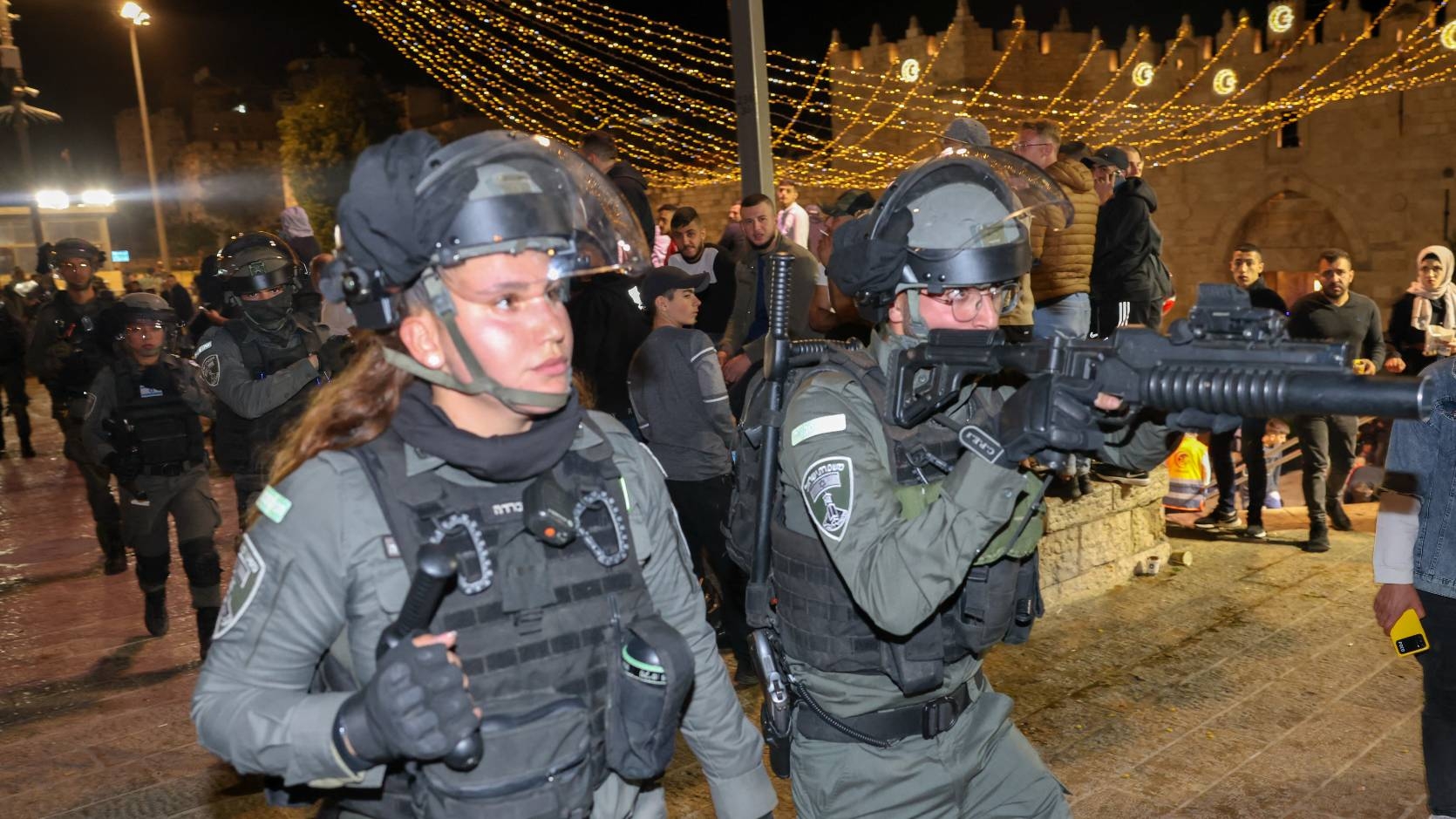Israel: Security forces prepare for potential unrest in mixed Arab-Jewish areas

Israeli forces are preparing for a scenario in which Palestinian and Jewish citizens would clash in towns and cities inside Israel in response to protests in occupied East Jerusalem and the West Bank.
According to Haaretz, the Israeli army views such a scenario as a "strategic factor" that could negatively affect fighting in the future.
"The security challenges within Israel and the internal tensions now have a negative strategic impact," a senior security official told Haaretz.
"The recent events, which reached a climax during Operation Guardian of the Walls, have very severe effects on security, much more than Iran and Hezbollah," he added, referring to Israel's military assault on the Gaza Strip last May.
Palestinian citizens of Israel, which make up 20 percent of the population, had protested then against the war on Gaza, the storming of Al-Aqsa Mosque, and settler attempts to evict Palestinians from Sheikh Jarrah.
New MEE newsletter: Jerusalem Dispatch
Sign up to get the latest insights and analysis on Israel-Palestine, alongside Turkey Unpacked and other MEE newsletters
There were numerous clashes in Arab-Jewish mixed cities inside Israel, which some critics described as a "civil war".
As tensions rise in the West Bank and East Jerusalem following the killing of several Israelis and Palestinians in March, protests are expected to spread among Palestinians inside Israel, security officials said.
Another factor considered was the possible launch of thousands of rockets and missiles from south Lebanon by the Lebanese movement, Hezbollah, and from the Gaza Strip and the Golan Heights.
Haaretz said that the scenario would see traffic being blocked or hindered near Palestinian communities inside Israel, and that the police and army could face difficulty reaching places where unexploded artillery had fallen, or rescuing injured civilians.
The plan was among many put in place in recent years by top Israeli commanders. Israeli police have to keep roads open and prevent the looting of homes during unrest, as it anticipated that tens of thousands of Israelis will be evacuated, mainly near the fence with Lebanon.
Other units, such as the engineering forces, will operate in areas where missiles would fall, and where police and army forces could not react or respond immediately.
Middle East Eye delivers independent and unrivalled coverage and analysis of the Middle East, North Africa and beyond. To learn more about republishing this content and the associated fees, please fill out this form. More about MEE can be found here.




